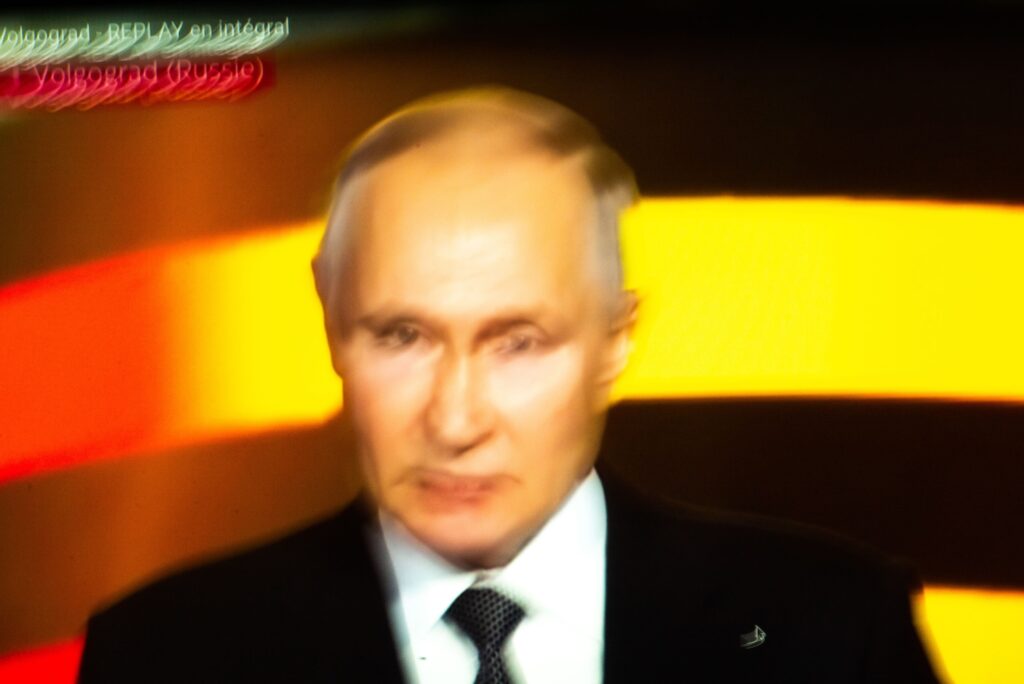Credit – Edouard Richard – Hans Lucas/Redux
TThe nuclear threats from Russia have come hard and fast in recent days. In one Telegram message Last month, a member of the Kremlin Security Council even mentioned a specific target in the heart of Europe, along with the time it would take a Russian missile to deliver a nuclear warhead to that location. But European leaders hardly seemed to flinch. In interviews with TIME, two of them dismissed Vladimir Putin’s warnings of destruction.
“I cannot assure you whether it is a bluff or not,” said Mette Frederiksen, the prime minister of Denmark, who has been one of the strongest advocates within the NATO alliance for stronger military aid to Ukraine. “But my view is that we can never let someone decide who doesn’t respect democracy, human rights and all the things we believe in – we can’t let him decide what the rest of us should do.”
Facing the escalating threat of nuclear war, Russia has tried to dissuade Western countries from supporting Ukraine, especially when it comes to long-range attacks on Russian targets. On September 19, the European Parliament adopted a resolution calling on Ukraine to take delivery of the weapons and authorize it to carry out such attacks, and Moscow’s response was unusually blunt.
“What the European Parliament calls for will lead to a world war with the use of nuclear weapons,” Vyacheslav Volodin, the speaker of the Russian parliament and member of the state security council, wrote on Telegram. One of Russia’s intercontinental ballistic missiles, he added, would take just three minutes and 20 seconds to deliver a nuclear warhead to Strasbourg, France, home to the European Parliament. “Do European citizens want the war to reach their homes?” asked Volodin.
But European Parliament President Roberta Metsola did not seem alarmed or even particularly surprised by the apocalyptic rhetoric. “It’s a typical reaction,” she told TIME a few days later. “It’s confrontational.” Asked if she took such threats seriously, Metsola added: “If that’s going to be the increasing rhetoric, then that’s something we have to be prepared for.”
The measured response was in line with a growing trend among Western officials. To many of them, Vladimir Putin is starting to sound like the guy who shouted nuclear weapons too often, blunting the impact of his own nuclear deterrent and allowing many Europeans to shake off their fear of it. “Fear and leadership do not go hand in hand,” says Frederiksen, the Danish Prime Minister. The Western habit of worrying about Putin’s red lines, she added, had caused too many delays in aid to Ukraine. “The only red line I see in this war was already crossed when they attacked Ukraine.”
The Kremlin, clearly aware that its red lines are being ignored, has continued to draw more lines. A few days after Volodin’s threat against the city of Strasbourg, Putin told a televised meeting of his Security Council that Russia should lower the threshold for the use of nuclear weapons. If Putin is confronted with a large-scale attack with conventional weapons, such as missiles or even drones suggestedRussia could respond with an atomic bomb.
That formal change in Russia nuclear doctrine – which previously envisaged a nuclear response only in the event of an existential threat to Russia – made headlines and sparked a new round of debate in Western capitals. But it produced no discernible change in the tone of Ukraine or its closest allies. “Russia no longer has any tools to intimidate the world, apart from nuclear blackmail,” said Andriy Yermak, chief of staff to Ukrainian President Volodymyr Zelensky. said in response against Putin’s latest threat. “These tools won’t work.”
Correction, October 3
The original version of this story misspelled the Danish Prime Minister’s surname. She is Mette Frederiksen, not Frederikson.
Contact us bee letters@time.com.







